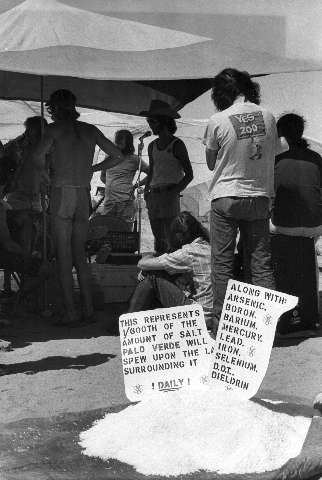Most years, my New Year’s resolutions are the usual mundane fantasy items– lose weight, spend less money, improve my love life, yada yada. The other day however, I received a lovely little notepad that says, “I am fairly certain that given a cape and a nice tiara, I could save the World.” Of course the author probably should have mentioned having a magic wand, but nonetheless, I was inspired to think that after the last ten abominable years, a decade-size resolution might be in order, so here it is:
TAKE BACK THE COUNTRY AND
SAVE THE WORLD
Cut to the chase, the last ten years have been a horror. From the stealing of two Presidential elections to the events of Sept. 11, 2001, the wars first in Afghanistan and then based on outright lies, Iraq. The fleecing of investors and non-investors alike by companies like Enron and Goldman Sachs. Katrina, the economy, foreclosures, the healthcare debacle and the failure of substantive progress in addressing climate change.
Add to that a global perspective, and of course things are much worse-horrendous weather along the Pacific Rim, the ongoing hell of places like Gaza and Darfur, people starving and dying of disease unnecessarily, half a million maternal mortality deaths every year, melting glaciers, it was, let’s face it, a decathlon of disaster.
In a must-read piece about what is needed, Ronnie Cummins of the Organic Consumers Association refers to those who run the government as “indentured politicians,” a thought echoed by Carl Bernstein who knows a thing or two about crooked politicians.
White House Chief of Staff Rahm Emanuel has been telling Democrats a win on the health issue will reverse the slide in public opinion, just as passage of another controversial proposal, the North American Free Trade Agreement, lifted President Bill Clinton in the polls.
And after all, it is all about public opinion…not.
Health insurers get some big presents in the Senate’s health overhaul bill — about 20 million new customers and no competition from a new government plan.Taking advantage of those boons might take some time, though.
The bill imposes hefty new taxes and coverage rules that will pinch insurers by forcing them to cover more sick people without gaining enough healthy, lower-cost customers, industry insiders say. The industry is also worried the bill doesn’t do enough to control health care costs.
It’s a matter of figuring out how to make those new customers profitable, analysts say.
However, the most damaging thing about the health care debate is not the legislation itself, flawed as that is, but rather that those who have opposed meaningful reform have been allowed to hijack the discourse with tactics such as using the issue of abortion rights not only to weaken the legislation but to create such a lengthy ruckus that things such as the economy, military spending and most importantly the environment have been relegated to afterthoughts.
“We need to deal with the phenomena of global warming, but I think it’s very difficult in the kind of economic circumstances we have right now,” said Indiana Democratic Sen. Evan Bayh, who called passage of any economy-wide cap and trade “unlikely.”
At a meeting about health care last month, moderates pushed to table climate legislation in favor of a jobs bill that would be an easier sell during the 2010 elections, according to Senate Democratic aides.
“I’d just as soon see that set aside until we work through the economy,” said Sen. Ben Nelson (D-Neb.), “What we don’t want to do is have anything get in the way of working to resolve the problems with the economy.”
Leaving aside the absurdity of cap and trade, so nice to hear from you again Sen. Nelson after your sellout of women’s human rights in exchange for the health of the insurance companies, and now you would have us believe that the economy is going to get better while the environment falters? Can I interest you in some oceanside property in Florida?
Translation of all this thanks to my handy B.S.-to-English translator: We need to see past our noses when it comes to the word from Washington according to self-serving politicians such as Nelson, Bayh and Emanuel. We may have voted these folks into power, but the reality is, their loyalties are to themselves and their corporate owners.
Which leads me back to that super-sized resolution. Enough already. Why in tarnation are we allowing corporations to pull the strings? Why is corporate welfare being valued over human rights? Why are we allowing the continued trashing and degradation of our planet? Where is the culpability?
I’ve written several times recently about the need to stand up for what you believe (here and here). It is time to do some serious introspection and to think about what we truly believe in and what is important, and quite frankly, whether we plan to be able to look back upon the next decade 10 years from now because that is just how serious the issue of climate change is. And then it is time to get off the couch.
We don’t have the luxury of waxing poetic while we watch the ball drop in Times Square. We’ve already dropped the ball enough. We need to be in the street, we need to go to Washington, and yes all that might mean going to jail, but no way around it, we need to reclaim the body politic and we need to do it now.

 quite strong. The degree to which the reason for the season has been lost in the traffic jam at the mall was illustrated quite nicely in the local newspaper where I was visiting over the Thanksgiving weekend which ran two stories side by side at the top of the first section, the first explaining how “Black Friday” is an important barometer of the economy and right next to it a story about cuts in state social services.
quite strong. The degree to which the reason for the season has been lost in the traffic jam at the mall was illustrated quite nicely in the local newspaper where I was visiting over the Thanksgiving weekend which ran two stories side by side at the top of the first section, the first explaining how “Black Friday” is an important barometer of the economy and right next to it a story about cuts in state social services.


